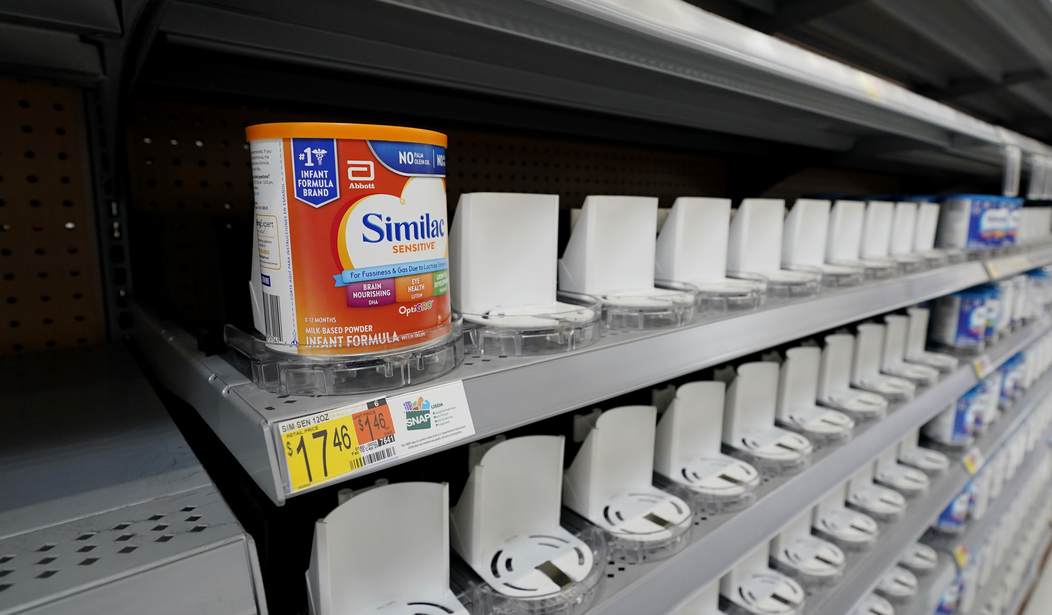You probably haven’t seen many stories about baby formula shortages on the cable news networks or on the front pages of the larger newspapers lately. And that lack of coverage might lead you to believe that the problem has finally been addressed. But you would be incorrect. Actually, the shortage is worse now than it was two months ago, though it varies from region to region. As of this week, 70% of all baby formula brands were out of stock. The people faring the worst are in Rhode Island, where 79.3% of all baby formula brands are currently out of stock. The most popular American brands are almost impossible to find, with imports from places as far away as Europe and Australia being the only ones available. (If you’re lucky enough to find them.) Too many mothers of infants are now complaining that the government is ignoring their plight. (Daily Mail)
The nationwide baby formula shortage has worsened with 70 percent of all brands reported out-of-stock, despite President Joe Biden’s efforts to make infant milk more accessible.
Families in Rhode Island and Vermont have been hardest hit by the shortage with out-of-stock rates at 79 percent and 78 percent, respectively.
Biden and the Food and Drug Administration (FDA) have made it easier for foreign manufacturers to get shipments into the country, and appealed to companies such as Nestle and Reckitt to step up production.
One mom who has been gaining attention for her efforts to highlight this problem is Amber Bergeron of Louisiana. She’s the mother of a pair of adorable twins (who she named Sky and Storm) and she has been venting her frustration to reporters. Her babies were born one month premature and her obstetrician instructed her to feed them a brand with higher nutrition levels until they catch up on their physical development. But she hasn’t been able to find those brands anywhere for weeks.
Bergeron told Fox News that she feels as if the government has simply forgotten about her and other mothers like her. She also said that she suspects that the babies born to Washinton politicians are still eating well.
So why is this still happening? Well, the Michigan Abbott plant where a very large percentage of American baby formula is produced is now partially reopened and the production lines are rolling. But it’s going to take several more weeks before they can get back to 100% capacity. Joe Biden’s Operation Fly Formula has helped a bit, bringing in the equivalent of roughly 800,000 bottles of formula per flight, but that’s not nearly enough to make up for the standard demand.
French producer Danone has exported more than 750,000 bottles to the United States and is promising another half million next week. They are exporting these products from New Zealand, along with some specialized formula for premie babies. All of these factors are helpful, but there are three million babies born in the United States each year and the majority of them consumes multiple bottles per day. There are still women out there offering their services as wet nurses, but they are few in number in comparison to the demand.
The bottom line here is that the supply chain has once again failed, and in this case, we can’t blame it on China. When a handful of companies consolidate their control over any industry and centralize their operations, that’s good for their bottom line. But it also creates a vulnerability, if their major operations centers unexpectedly go down, as we saw with Abbott. When you add in the complications involved in relying on foreign markets (as we rely on China for too many products ranging from computer chips to batteries and solar panel parts) the vulnerabilities are further increased. We need to be manufacturing more critical products here in the United States and promoting diversification in the supply chain to prevent these types of shortages from happening over and over.









Join the conversation as a VIP Member